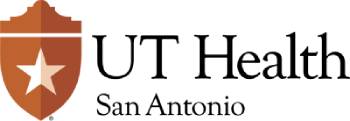 The Max and Minnie Tomerlin Voelcker Fund has awarded $1.45 million to support three innovative research projects and one pilot research project, all conducted by rising young faculty studying cancer and cardiovascular disease.
The Max and Minnie Tomerlin Voelcker Fund has awarded $1.45 million to support three innovative research projects and one pilot research project, all conducted by rising young faculty studying cancer and cardiovascular disease.
The new Voelcker Fund Young Investigator Awards will assist Myron Ignatius, Ph.D., assistant professor of molecular medicine and member of the Greehey Children’s Cancer Research Institute; April Risinger, Ph.D., assistant professor of pharmacology; and Carolina Solis-Herrera, M.D., assistant professor of medicine and member of the UT Health Physicians clinical practice.
A Voelcker Fund Pilot Research Award will support David Libich, Ph.D., assistant professor of biochemistry and structural biology and member of the Greehey institute.
“This vital program of the Voelcker fund targets young investigators to support their careers,” said UT Health
San Antonio President William L. Henrich, M.D., MACP. “Their initial research is evaluated by peer reviewers who are scientists on the national level. The selection of our young faculty members for these grant awards is meritorious and highly important for San Antonio.”
Andrea Giuffrida, Ph.D., vice president for research, said the Voelcker Fund Young Investigator Awards are “a trampoline to launch the researchers into the next phase of their careers as National Institutes of Health-funded researchers studying diseases such as cancer that are specifically targeted by the Voelcker fund.”
The Voelcker fund board of trustees also allocated $846,930 to continue the Voelcker Biomedical Research Academy at the university through 2021. The academy is a two-year immersive summer experience for high school students ages 16 and older to learn about and conduct biomedical research in preparation for college and for careers in science and health care.
The academy recruits diverse and academically accomplished high school students from San Antonio school districts for hands-on training in biomedical research at UT Health San Antonio. This is in preparation for their transition to college.
One objective is to develop the academy as a national model of life sciences educational pipeline programming,
Dr. Henrich said.
The Voelcker Biomedical Research Academy began in 2009 and has been continuously supported by the Voelcker fund from the outset. It has expanded its curriculum to include fundamentals in population health, precision medicine, bioinformatics and biotechnology commercialization, Dr. Giuffrida said.
All high school participants are mentored by UT Health San Antonio faculty, postdoctoral fellows and graduate students, who offer an individualized training plan and assess the students’ scientific progress.
